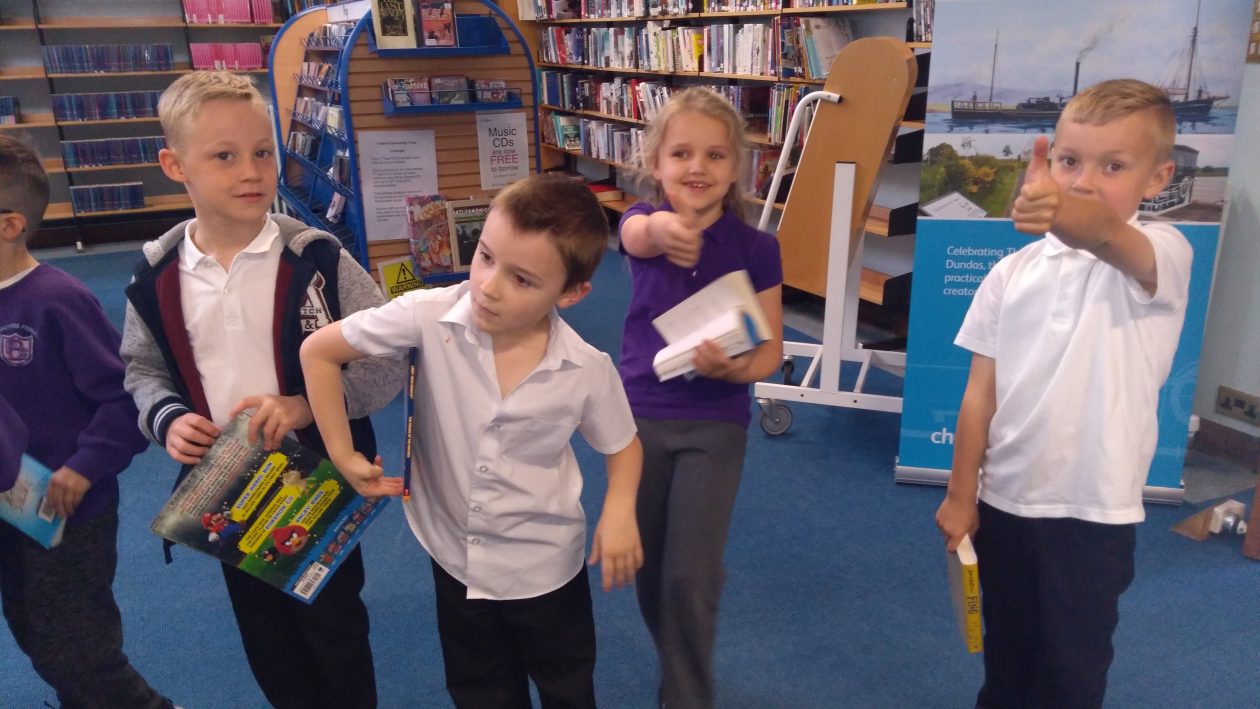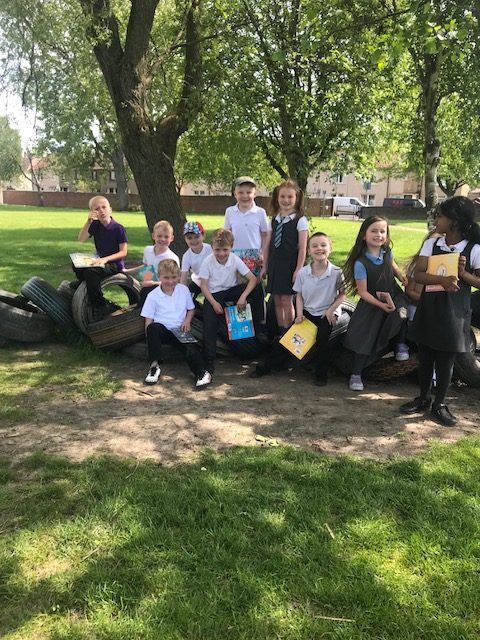
In March 2018 Rebecca Morrison, class teacher of primary 2 at Beancross PS began looking at ways to help her pupils make more progress in their reading. After attending a CPD session which explored enjoyment and choice in reading, Rebecca decided to make links with the local library and to involve parents who wanted to help progress their children’s reading.
With the support of her head teacher, Rebecca initially checked that Grangemouth Public Library could accommodate class visits by her pupils. The next step was to set dates which suited the library and her children’s parents. Parents were invited to join in with monthly visits to the library to read with their children, help them select books and generally promote reading and the use of the library.
So far the visits have been well attended by parents and pupils have been very enthusiastic about this shared reading experience. Some parents have become members of the library as a result of this initiative. Pupils borrow a book from the library each time they visit, returning it the following time – they really enjoy having access to the huge range of books available in the public library.
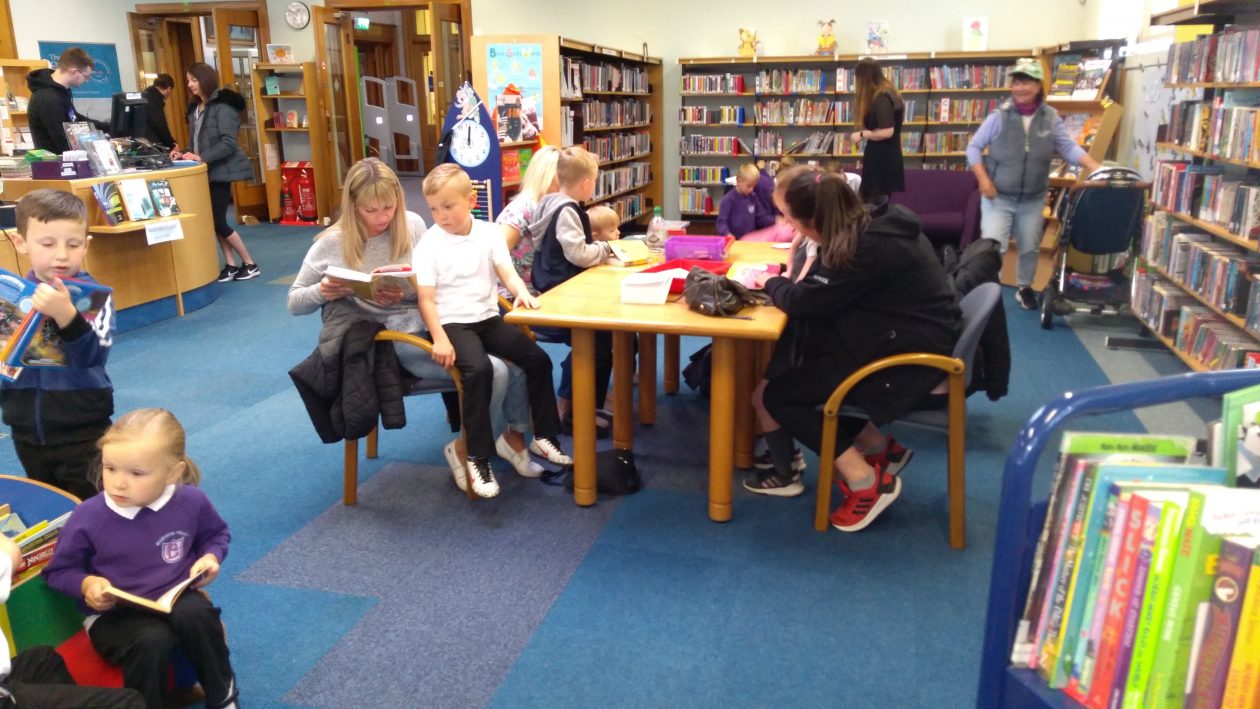
Yvonne McBlain, curriculum support teacher with Falkirk Children’s Services joined the class visit on the morning of 29th May 2019, and spoke to the children, parents, carers and grandparents attending. She asked the children how they felt about the library visits:
Kayden said “Happy. I like going to the library, I’ve been every month since I started primary 2. I read more and I enjoy getting new books.”
Hannah likes the visits because “there’s lots of books close together and I can choose anything I want.”
Siobhan said “I feel good going to the library and I enjoy that you get new books every month. It helps with my reading and sounding out words. I like getting them (right) and if I’m not sure I can ask.”
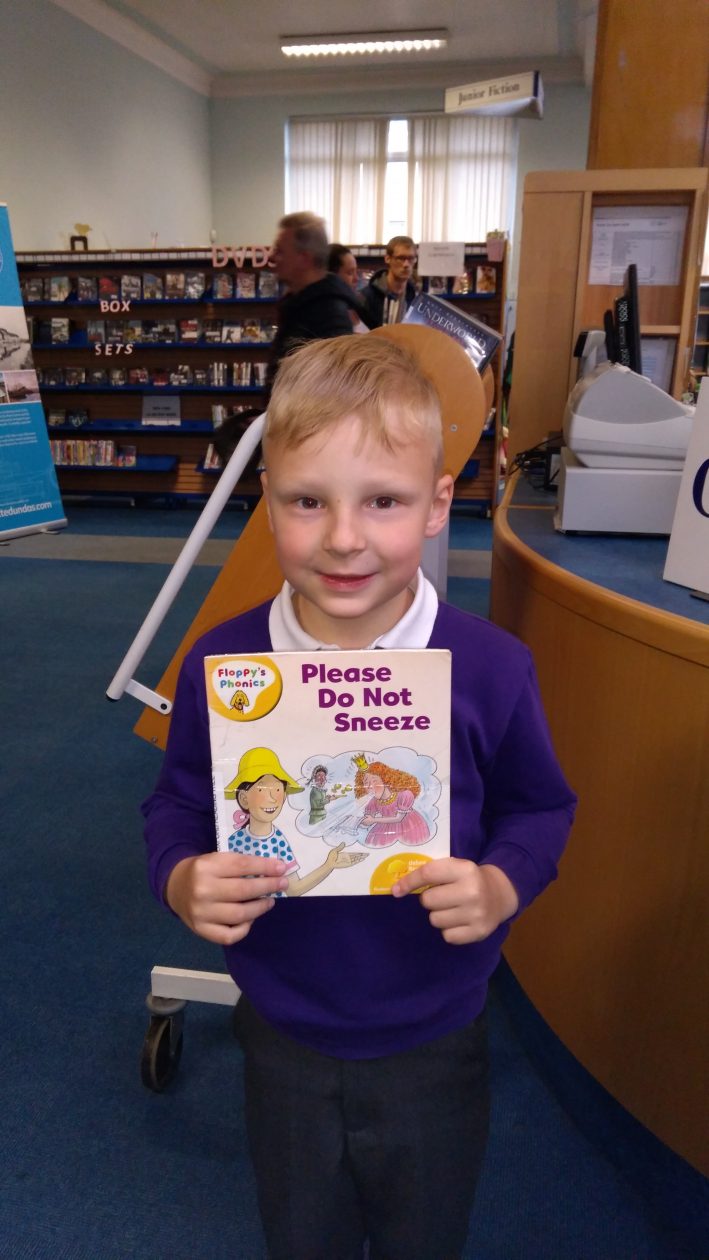
One of the mums said “It’s really good for them to be able to come down to pick a book they can read in school – the visits help them become more independent.” Mr Finlayson joined his grandson to read, commenting that “He reads all the time and has been coming to the library since he was 18 months old – it definitely has paid dividends for his reading.” Mums Jennifer and Emma feel that the visits are a very valuable experience for the children who hadn’t been to the library before. They suggested that the visits really encourage reading as well as offering a valuable opportunity to walk from school, getting fresh air, exercise and learning safe routes around their town. This was dad James’ first time being part of the library visit, and he explained that his child “seems to be enjoying it – it’s nice to see them coming to the library.”
Rebecca has been liaising with Grant, the librarian to arrange the visits and as soon as he and his colleagues had completed the mammoth task of checking out the books, Yvonne also gathered his thoughts: “We love having the kids in the library – they are the future and it’s great that they are getting into reading and literature. We have our Summer Challenge coming up (click here for more information) and it’s great that we have such good relationships with the primary schools in Grangemouth.
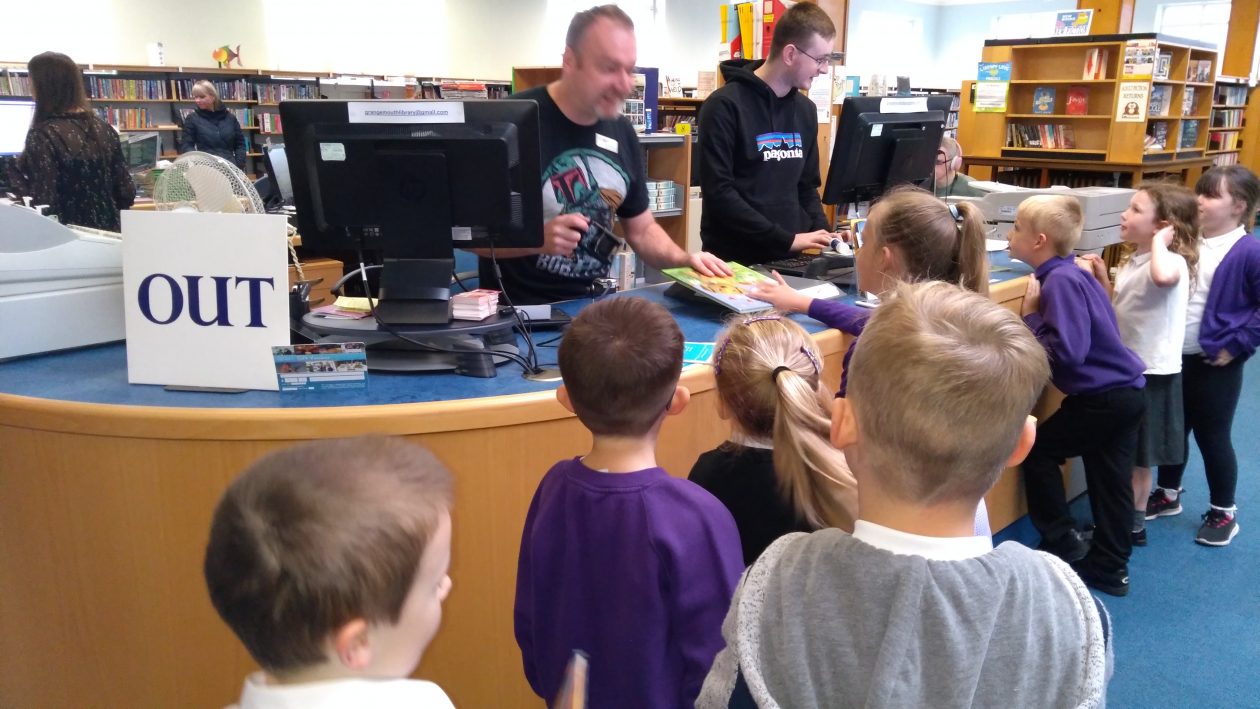
The enjoyment of the children was obvious during their visit, with final selection and stamping of books being particularly exciting – as can be seen from the photos.
Rebecca has observed that combining her teaching of reading in the classroom with monthly visits to the public library with parents has helped her pupils’ reading in the following ways:
- pupils willingly choose to read for pleasure during opportunities for free choice in class
- they are eager to look at and read each others’ books (they have read more books!)
- the number of pupils who read at home has increased
- parents are reading with their children more frequently than before
- pupils who previously struggled with fluency and comprehension have improved these skills – some of them have made very significant progress
Rebecca will continue to develop this work next session through an approach called practitioner inquiry where research and more formal data measures will help her evaluate just how much difference this reading intervention makes.
